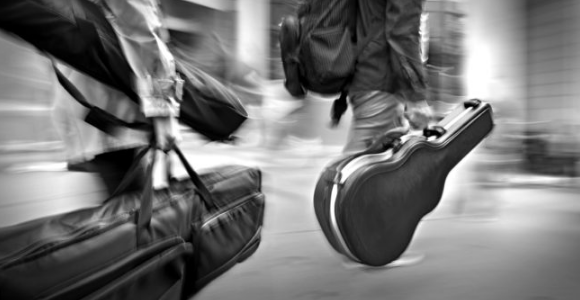Products Category
- FM Transmitter
- 0-50w 50w-1000w 2kw-10kw 10kw+
- TV Transmitter
- 0-50w 50-1kw 2kw-10kw
- FM Antenna
- TV Antenna
- Antenna Accessory
- Cable Connector Power Splitter Dummy Load
- RF Transistor
- Power Supply
- Audio Equipments
- DTV Front End Equipment
- Link System
- STL system Microwave Link system
- FM Radio
- Power Meter
- Other Products
- Special for Coronavirus
Products Tags
Fmuser Sites
- es.fmuser.net
- it.fmuser.net
- fr.fmuser.net
- de.fmuser.net
- af.fmuser.net ->Afrikaans
- sq.fmuser.net ->Albanian
- ar.fmuser.net ->Arabic
- hy.fmuser.net ->Armenian
- az.fmuser.net ->Azerbaijani
- eu.fmuser.net ->Basque
- be.fmuser.net ->Belarusian
- bg.fmuser.net ->Bulgarian
- ca.fmuser.net ->Catalan
- zh-CN.fmuser.net ->Chinese (Simplified)
- zh-TW.fmuser.net ->Chinese (Traditional)
- hr.fmuser.net ->Croatian
- cs.fmuser.net ->Czech
- da.fmuser.net ->Danish
- nl.fmuser.net ->Dutch
- et.fmuser.net ->Estonian
- tl.fmuser.net ->Filipino
- fi.fmuser.net ->Finnish
- fr.fmuser.net ->French
- gl.fmuser.net ->Galician
- ka.fmuser.net ->Georgian
- de.fmuser.net ->German
- el.fmuser.net ->Greek
- ht.fmuser.net ->Haitian Creole
- iw.fmuser.net ->Hebrew
- hi.fmuser.net ->Hindi
- hu.fmuser.net ->Hungarian
- is.fmuser.net ->Icelandic
- id.fmuser.net ->Indonesian
- ga.fmuser.net ->Irish
- it.fmuser.net ->Italian
- ja.fmuser.net ->Japanese
- ko.fmuser.net ->Korean
- lv.fmuser.net ->Latvian
- lt.fmuser.net ->Lithuanian
- mk.fmuser.net ->Macedonian
- ms.fmuser.net ->Malay
- mt.fmuser.net ->Maltese
- no.fmuser.net ->Norwegian
- fa.fmuser.net ->Persian
- pl.fmuser.net ->Polish
- pt.fmuser.net ->Portuguese
- ro.fmuser.net ->Romanian
- ru.fmuser.net ->Russian
- sr.fmuser.net ->Serbian
- sk.fmuser.net ->Slovak
- sl.fmuser.net ->Slovenian
- es.fmuser.net ->Spanish
- sw.fmuser.net ->Swahili
- sv.fmuser.net ->Swedish
- th.fmuser.net ->Thai
- tr.fmuser.net ->Turkish
- uk.fmuser.net ->Ukrainian
- ur.fmuser.net ->Urdu
- vi.fmuser.net ->Vietnamese
- cy.fmuser.net ->Welsh
- yi.fmuser.net ->Yiddish
Tips for Traveling with Instruments & Gear
Date:2020/2/12 16:48:45 Hits:

When it comes to taking your show on the road, you can’t beat giving the compass a spin and seeing where you land. But be careful. Life on the road can be tough on your gear. How can you make sure your gear has as much fun as you do? Before you jump behind the wheel or buy that economy class ticket, take a look at these travel tips — they might save you from the traveling blues.
Be a hard case.
Gig bags are great. They’re light, compact, and easy to carry. But if you’re traveling any distance at all, you’re going to want a hard case. Not only does a good hard case protect your instrument from bumps and bruises, but it also helps regulate the temperature and humidity changes that wreck your tone and shorten the life of your instrument.
Hard cases are typically available in several flavors — wood, injection-molded synthetics, or fiberglass. No matter which one you choose, keep this in mind: if the case flexes at all when you push on it with your hand, don’t get it. It simply won’t stand up to the banging, stacking, and even tossing that it will have to face on the road.
Your instrument should lay flat inside the case, with no wiggle room. For extra insurance, some musicians will carefully add a spare sock here or a towel there to ensure a perfect fit. Of course, the best way to ensure a perfect fit is to choose the OEM hard case that was made specifically for your instrument.
If you are having trouble finding a hard case for your instrument or simply like doing things the easy way, you need to check out Sweetwater’s amazing Case Finder. Simply choose your gear category and enter the brand — we’ll give you a list of excellent options to pick from.
Ship ahoy.
Sweetwater ships thousands of instruments around the world every day — we can vouch for this idea. If you have a large instrument or multiple instruments, shipping is a great option. As long as your instrument is packed securely (see “Be a hard case”), the shipping company will do a fantastic job of getting it where it needs to go. Just be sure to pony up for the travel insurance — the peace of mind alone is worth it, and the few times you actually need it are well worth the cost.
Play it like you rented it.
While we’re on the topic of larger instruments and gear, it never hurts to check out the rental situation at your destination. Does the venue already have large gear of its own that you could use? It’s worth a pre-performance scouting trip to find out — after all, if it’s there, then you don’t have to take it.
You can also look into renting gear from somewhere close to your performance. Some places will even bring it to you and may even help with setup and tear-down. Sure, it may feel wrong to use a chunk of your cut to rent gear you already have, but the expense and hassle of hauling your own may be just as costly.
Consider the Climate.
Here’s a simple rule of thumb to remember: if it is too hot or cold for you to stay in the car, then it’s too hot or cold for your instrument or tech gear. If at all possible, take it inside with you if you stop for more than a few hours. When you reach your destination, let your instruments and gear rest in their cases for a while before you use anything. This allows temperatures and humidity to stabilize gradually and protects your instruments and gear from wild fluctuations.
Lighten up, Francis.
It’s important to remember that just because you have instruments and gear, doesn’t mean you need to take it all. Pack just the bare essentials, and then add two or three bonus “can’t do without” items. If you play guitar, this is a great excuse to get yourself a travel guitar. Compact guitars aren’t just a novelty; nowadays, you can even get away with taking one onstage with you. Great sound, light weight, and easy transport — what more could you ask for?
Check it out.
Many touring drummers will rent or borrow bigger pieces (kick drum, floor toms, stands, etc.) at the show, but they’ll also bring along a touch of home. A large hard suitcase can hold your snare plus cymbals that are safeguarded in a cymbal bag. Just pack your clothes around the snare. You can even throw in your drum key and a loaded stick bag.
Be a wrap artist.
Even if you are using drum cases for your kit, there are still fragile components to consider. It helps to wrap your drum module and triggers with the clothes in your suitcase. Speaking of triggers, be sure to take them off the shells when you’re done playing — leaving them on is a lightning-fast way to bust them.
Watch your back.
Your instruments and gear are cool and expensive. Unfortunately, thieves know that. But there are a few road rules to discourage them. First of all, keep it on the down low. Avoid trailers and vehicle graphics promoting your band — you might as well say, “Expensive gear in here, come and get it!” If you have to use a trailer, try to back it up tightly against a wall overnight. The most obvious answer is to take your gear in with you at night. While this sounds awful, it really is the smartest move. It protects your gear from theft and extreme temperatures. While you’re setting up for your show, pull up once and unload what you need. The more trips you make back and forth to the van/trailer, the more chances you give thieves to discover where you keep your gear.
Carry on, wayward…
If you’re flying, it might interest you to know that the TSA now allows smaller instruments (between violin and guitar size) to be counted as a carry-on — as long as it fits in the overhead bin or under your seat. It’s even worth paying a little more for priority boarding to make sure there is still room in the overhead bins when you take your seat.
Leave a message
Message List
Comments Loading...





